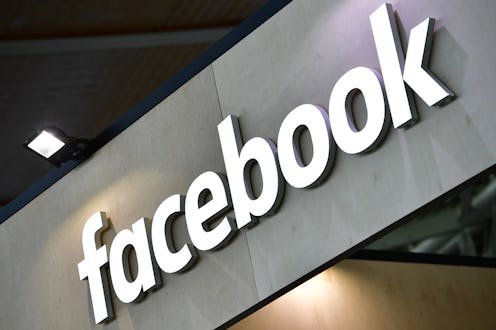
It appears that Facebook and Instagram users may still have feeds under attack by outside entities. In a publicly posted announcement on Tuesday, Facebook said it banned 32 users and accounts that it believed were engaged in "coordinated inauthentic behavior" that shared some similarities to the kind that sought to influence the 2016 presidential election.
Facebook underscored that they did not currently know where the accounts were routed. "We’re still in the very early stages of our investigation and don’t have all the facts — including who may be behind this," the social media network wrote in its public post. What they do have is a timeline to track the activity associated with this round of banned accounts.
"The first account was set up in March 2017, and others were created over time, including as recently as May 2018," a Facebook spokesperson tells Bustle. "We're still reviewing the activity associated with these accounts and Pages and will have more information at a later date."
Though Facebook hasn't characterized the fake accounts — which created upward of 9,500 posts on Facebook and one piece of content on Instagram — as part of an attempt to influence the 2018 midterms, much of the example content that Facebook shared was political in nature. One key account that they focused on in their news bulletin, for example, was called "Resisters."
The Resisters page, in particular, had been caught organizing an event dubbed "No Unite the Right 2 – DC," a counter protest related to the second rendition of a white nationalist rally where one counter-protestor was killed last August. Somehow, the "bad actor" accounts helping to organize the event had managed to work with other event administrators who are believed to be authentic users. Facebook took the event down on Tuesday.
Although Facebook didn't characterize these posts and accounts as trying to interfere with the 2018 midterm election, a report by The New York Times suggests that may be the case. According to the Times, the accounts and pages were discovered as part of the company's investigation into election interference more broadly.
Some politicians, as well, were quick to draw a connection between the newly banned accounts and the upcoming midterms. "Today's announcement from Facebook demonstrates what we've long feared: that malicious foreign actors bearing the hallmarks of previously-identified Russian influence campaigns continue to abuse and weaponize social media platforms to influence the U.S. electorate," Rep. Adam Schiff said in a statement reported on by The Hill.
Schiff went on to say that "work needs to be done before the midterm elections to harden our defenses, because foreign bad actors are using the exact same playbook they used in 2016 — dividing us along apolitical and ideological lines."
Facebook, for its part, said in its public statement that it alerted U.S. authorities after identifying that there was a new network of bad actors. "Our technical forensics are insufficient to provide high confidence attribution at this time," the company wrote. "We have proactively reported our technical findings to US law enforcement because they have much more information than we do, and may in time be in a position to provide public attribution."
More information will likely be revealed in the coming months and weeks. Facebook said it will update its public post as new facts are available.